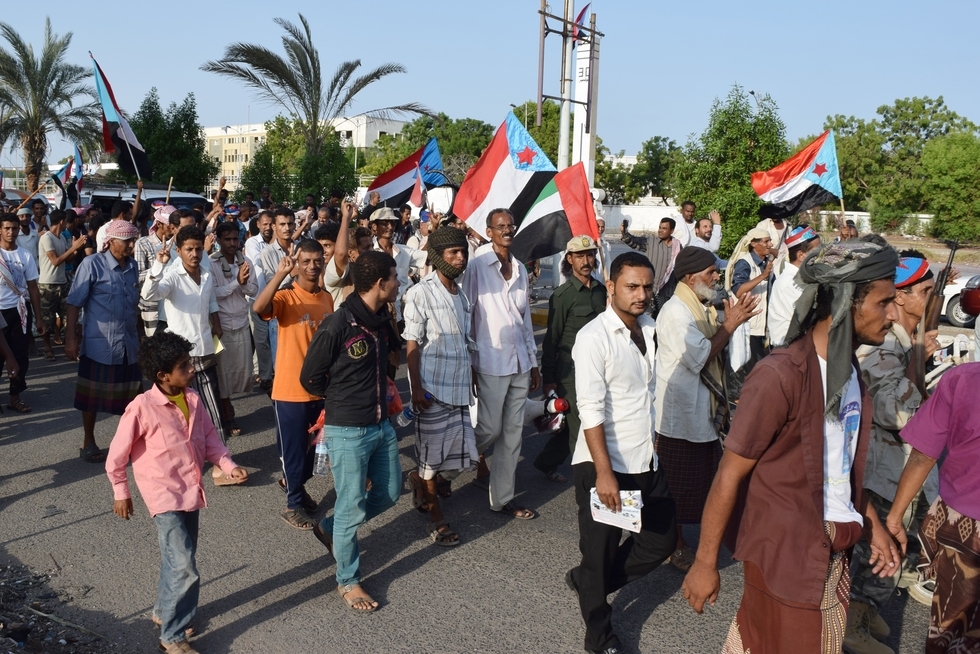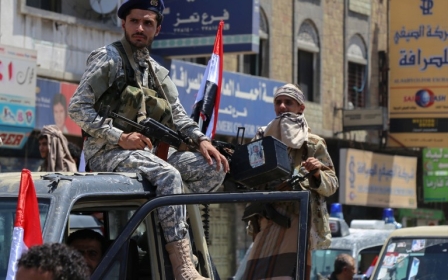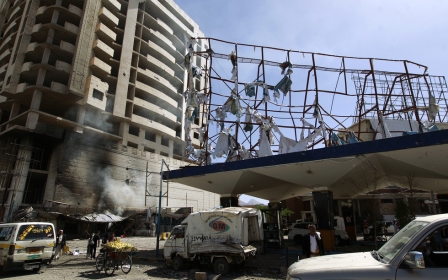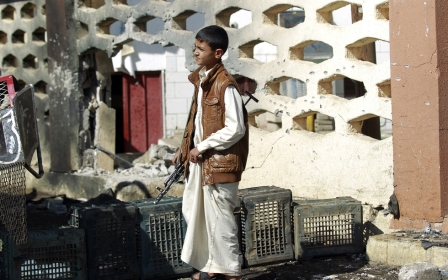Aden protesters call for secession of southern Yemen

Thousands of Southern Yemenis demonstrated on Wednesday in Aden demanding the secession of their formerly independent region, three months after Shia Houthi fighters were driven out.
The demonstration was the first open call for secession since Southern forces allied with the government and backed by a Saudi-led coalition pushed the rebels out of Aden and other provinces.
But now that the rebel threat has eased in the area, protesters said they do not want to continue the fight against the insurgents in the north and demanded their own state.
"Taking the Southerners into the war in the north cements the unity of Yemen, which we reject," said a banner carried at the rally in Aden's main square of al-Arood.
Marching to commemorate the anniversary of independence from Britain in 1967, protesters carried flags of the former South Yemen state, which was united with the north in 1990.
A secession attempt in 1994 was crushed by northern forces.
Most of the north is now controlled by the Houthi rebels and their allies of forces loyal to former president Ali Abdullah Saleh, since the rebels seized the capital Sanaa unopposed in September 2014 and moved on to capture other provinces. The ongoing civil war in Yemen has claimed the lives of thousands of people, many of them civilians, and has caused a humanitarian crisis.
After pushing the rebels out of five southern provinces in the summer, with air and ground support from the coalition, forces loyal to President Abedrabbuh Mansour Hadi have set their sights on Marib province east of Sanaa.
But the Southerners have other ambitions.
"After achieving victory in the battle, the people of the south adhere to their political demand voiced in 1994, which is reinstating the Southern state," said Omar al-Subeihi, the head of the rally organising committee.
The Saudi-led coalition launched an air campaign late March in support of Hadi after the rebels closed in on his last refuge in Aden, before he fled to Riyadh.
Hadi has demanded a full withdrawal of the Iran-backed rebels from the territories they seized, as set out under UN Security Council Resolution 2216.
Meanwhile, al-Qaeda members on Wednesday occupied the government offices in Zinjibar, the capital of Abyan province, taking advantage of a security vacuum, an official there said.
Members of al-Qaeda in the Arabian Peninsula (AQAP) are active in southern and southeastern Yemen. Washington considers AQAP as the most dangerous branch of the network.
The area's Popular Resistance Committees chief Hussein al-Wahishi said, however, that the control of al-Qaeda militants in Zinjibar does not go beyond the official building.
Also on Wednesday, pro-Hadi forces announced that 12 of their fighters along with five civilians had been killed by landmines planted by Houthi forces in the central Marib province this month, the Associated Press reported.
The Houthis planted the mines there when they were driven from their last outpost in the province last week, the report said.
Middle East Eye propose une couverture et une analyse indépendantes et incomparables du Moyen-Orient, de l’Afrique du Nord et d’autres régions du monde. Pour en savoir plus sur la reprise de ce contenu et les frais qui s’appliquent, veuillez remplir ce formulaire [en anglais]. Pour en savoir plus sur MEE, cliquez ici [en anglais].




